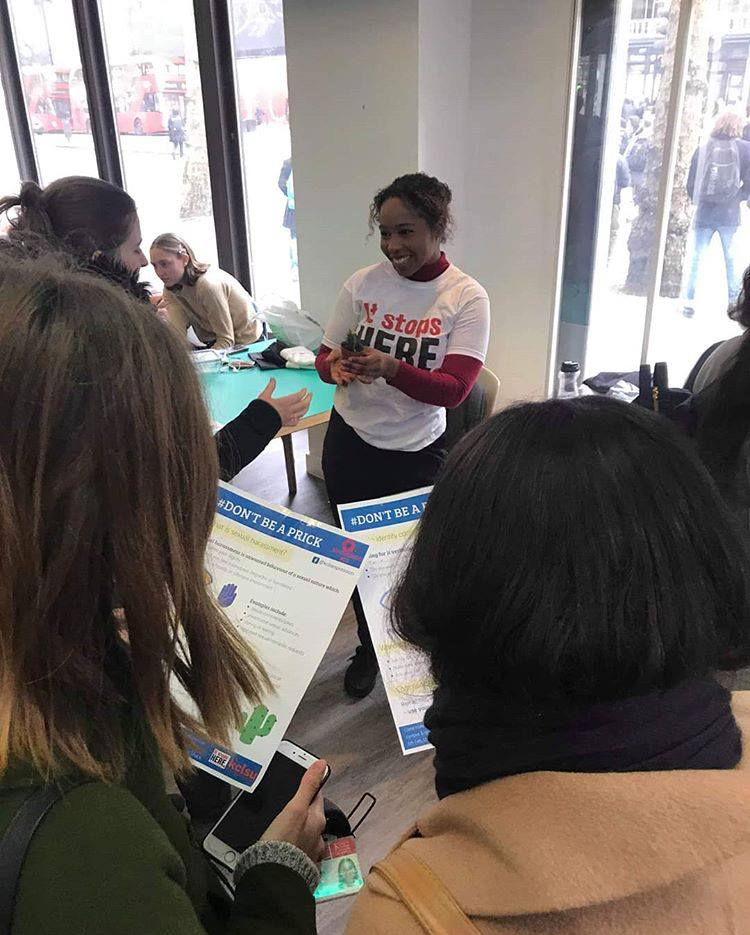To celebrate It Stops Here Week (25th Feb – 1st March), our wonderful Projects & Communications Intern, Riana Henry, has written a blog on the importance of engaging with our student community.
The theme of It Stops Here Week 2019 is “intersectional allyship”
But what does this mean and how does this support the vision of the It Stops Here campaign?
Intersectionality is all about recognising the connection between different types of stigmas and oppression in our society. Allyship is all about supporting one another in our community.
“Intersectional allyship” can happen once we educate ourselves on the connection between the different stigmas prevalent in our society and how we can actually support those who are affected by them in a variety of ways.
Recently, KCL Sexpression ran the “Don’t Be a Prick campaign”. They posted information online about consent, sexual harassment and being an active bystander and then challenged students to be quizzed on this information. If students answered correctly they were rewarded with a cactus.

The aim of the campaign was to educate students and raise awareness about the issues we face in society around attitudes towards sexual harassment.
I was initially sceptical about how much of an impact this would have on solving such a massive problem.
However, after talking to students that came along to stall I was proved wrong. There were some students who had completely misunderstood what consent was, putting themselves and others at risk. Through the campaign we were able to do something about this and help to combat harassment before it had the chance to happen by educating and raising awareness.
I remember one student mentioned it was ridiculous that we should have to run campaigns like this to educate adults on what consent is. Whilst it is shame this type of education is not prioritised in schools and it is terrible we live in a society so ignorant to these issues, we have the power to change this one step at a time.
The “Don’t Be a Prick” campaign is one small step, It Stops Here week another and if we can continue to take these small steps without being deterred by the complexity and vastness of the problem, I honestly believe we can achieve the ambitious aims of the It Stops Here campaign.